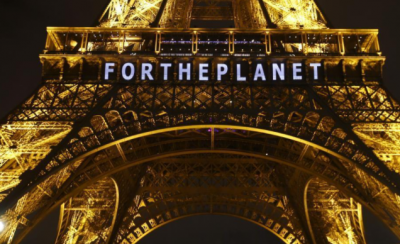Polluting Paris – How Big Polluters Are Undermining Global Climate Policy

A new report out today from Corporate Europe Observatory co-published with Corporate Accountability International, ActionAid, Asian Peoples’ Movement on Debt and Development and ETC Group exposes how the industries most responsible for climate change, especially fossil fuel Transnational Corporations (TNCs), are obstructing real progress to address the climate crisis across key policy areas where urgent progress over the next couple of years will largely determine how habitable our future will be.
At the United Nations Framework Convention on Climate Change (UNFCCC), fossil fuel TNCs and other industries intent on exploiting the climate crisis are hijacking the talks, stifling ambition, pushing false solutions, and blocking the financing (and therefore withholding the availability) of real solutions.
Who can doubt, for example, that the failure of the United States to secure domestic climate legislation, or ratify the Kyoto Protocol or the Paris Agreement, is largely the result of industry interference? Perhaps as troubling is that the UNFCCC not only overlooks this obstructionism but welcomes these industries with open arms, further legitimizing them in the eyes of the world.
It might look like world governments are in the driver’s seat, but behind the scenes, it is the industries most responsible for, and those seeking to profit from, climate change that are pulling the strings.
However, without the UNFCCC and the Paris Agreement, Global North governments like the US and EU are left free to do the bidding of the fossil fuel industry, while the rest of the world—especially Global South countries, low-income communities, people of color, women and children—continues to pay the price. World governments can use the negotiations at the UNFCCC to insulate climate policymaking from corporate capture at all levels, and to hold recalcitrant Global North governments accountable for doing their fair share to address climate change.
We know the Paris Agreement as it currently stands is not enough to stop the climate crisis. Even if all countries honor their current pledges to decrease emissions, the world would still warm by 3 degrees Celsius or more. Yet without the Paris Agreement and what it could be without the interference of Big Polluters, we are unlikely to achieve the global progress that must be made in an extraordinarily short time.
Governments have the opportunity to ensure that the rules and procedures they are currently developing transform the agreement from words on paper into ambitious action. By the end of 2018 at COP24, countries have agreed to develop the guidelines that will chaperone the implementation of the pledges governments have made. This is our opportunity to make sure that the meaningful, equitable, and sustainable solutions at our fingertips become reality.
This report highlights how within the U.N. climate talks, key negotiating tracks undermined by industry interference include finance, mechanisms for international cooperation, agriculture, technology, and observer participation.
“For decades, the U.S. government has used the UNFCCC to advance weak deals and push fossil fuel industry interests ahead of the needs and rights of people.”
But all is not lost. The report also highlights what can be done in each of these tracks to protect against corporate capture and implement the solutions already at our fingertips.
Read the full report: Polluting Paris
Featured image is from TruePublica.

